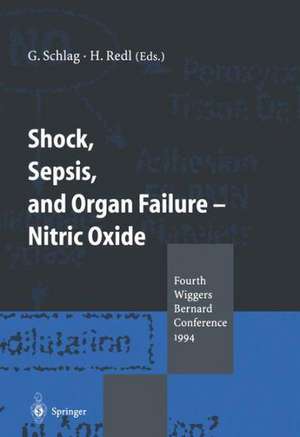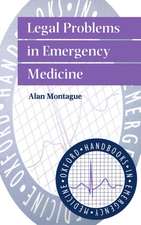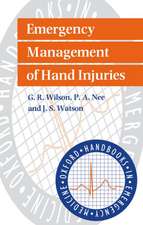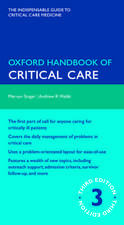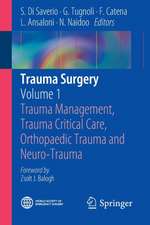Shock, Sepsis, and Organ Failure — Nitric Oxide: Fourth Wiggers Bernard Conference 1994
Editat de Günther Schlag, Heinz Redlen Limba Engleză Paperback – 29 dec 2011
Preț: 722.84 lei
Preț vechi: 760.88 lei
-5% Nou
Puncte Express: 1084
Preț estimativ în valută:
138.33€ • 143.89$ • 114.20£
138.33€ • 143.89$ • 114.20£
Carte tipărită la comandă
Livrare economică 14-28 aprilie
Preluare comenzi: 021 569.72.76
Specificații
ISBN-13: 9783642793455
ISBN-10: 3642793452
Pagini: 372
Ilustrații: XIII, 355 p.
Dimensiuni: 170 x 242 x 20 mm
Greutate: 0.59 kg
Ediția:Softcover reprint of the original 1st ed. 1995
Editura: Springer Berlin, Heidelberg
Colecția Springer
Locul publicării:Berlin, Heidelberg, Germany
ISBN-10: 3642793452
Pagini: 372
Ilustrații: XIII, 355 p.
Dimensiuni: 170 x 242 x 20 mm
Greutate: 0.59 kg
Ediția:Softcover reprint of the original 1st ed. 1995
Editura: Springer Berlin, Heidelberg
Colecția Springer
Locul publicării:Berlin, Heidelberg, Germany
Public țintă
ResearchDescriere
International experts examine the role of nitric oxide in various metabolic events such as septic shock, cardiovascular dysfunction, and trauma and hemorrhagic shock. The nitric oxide pathway and nitric oxide synthesis regulation are also discussed.
Cuprins
Nitric Oxide and Cardiovascular Dysfunction in Sepsis and Endotoxaemia: An Introduction and an Overview.- Inhibition of Induction or Activity of Nitric Oxide Synthase: Novel Approaches for the Therapy of Circulatory Shock.- Involvement of Endotoxin, Tumour Necrosis Factor, and Nitric Oxide in Hemorrhagic Shock-Related Alterations.- The Role of Nitric Oxide in Hemorrhagic Shock and Trauma.- Induction by Endotoxin of Nitric Oxide Production in Vascular Smooth Muscle Cells.- Nitric Oxide: A Modulator of Cell-Cell Adhesion and Protein Exchange in Postcapillary Venules.- Pathogenetic Mechanisms in Gram-Positive Shock: Studies on the Ability of Streptococcus pyogenes to Induce Nitric Oxide In Vitro.- Septic Shock: A Central Role for Nitric Oxide.- The Role of Nitric Oxide in Vascular Haemostasis and Thrombosis: Implications for Septicaemia and Cell Damage.- Inhibition of Nitric Oxide Synthase During Sepsis and Endotoxemia May Be Detrimental.- Induction of GTP-Cyclohydrolase I by Bacterial Lipo-polysaccharide: Implications for Nitric Oxide Formation.- Nitric Oxide Inhalation Therapy in Lung Failure.- Vasodilators in Sepsis.- The Nitric Oxide Pathway in the Control of Myocardial Function: Role of Cytokines.- Nitric Oxide Dependent and Independent Effects of Tumor Necrosis Factor-a on Cardiomyocyte Beating Activity and Signal Transduction Pathways.- Effect of Nitrosylated Albumin in the Isolated Rabbit Heart.- Myocardial Depression in Septic Shock: Role of Nitric Oxide and other Mediators.- Comments to NO in Trauma.
Textul de pe ultima copertă
At the fourth Wiggers Bernard Conference, a group of 20 scientists from various fields discussed new findings relating to nitric oxide in shock, sepsis, and organ failure. It is now recognized that nitric oxide is induced by endotoxin and cytokines and plays a central role in infectious diseases, hemorrhage and ischemia. Intense discussions were held on the usefulness or danger of nitric oxide synthase inhibitors as well as on the application of exogenous nitric oxide or nitric oxide donors.
